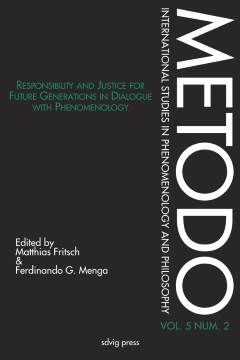Repository | Journal | Volume | Articles

(2017) Metodo 5 (2).
Any ethics directed to future demands is confronted with two main problems. Firstly, how can we conceive a kind of future which does not only hold the past and prolong the present, but remains open for something coming in an unexpected way (see Zu-kunft, a-venir). Secondly, how does it happen that demands of not yet existing people really concern us? This paper tries to answer to these questions from the perspective of a responsive phenomenology based on our responding to the Other’s demands which precede and exceed our own initiative. This intimates a sort of anterior future according to which we are permanently what we have to be. Leading concepts, supported by authors like Husserl, Schutz, Merleau-Ponty, Levinas, Marx and Nietzsche, are the following: generativity of life crossing the thresholds between different generations; procreation which allows for surviving in the children; projects of responsive politics and economics which take care to keep the world habitable; finally, a sort of tele-moral stimulated by Fernstenliebe which discovers traces of a future humanity in the face of the Other.
Publication details
Full citation:
Waldenfels, B. (2017). Antworten auf Ansprüche Nachkommender. Metodo 5 (2), pp. 19-45.
This text is available for download in the following format(s)
This document is available at an external location. Please follow the link below. Hold the CTRL button to open the link in a new window.



